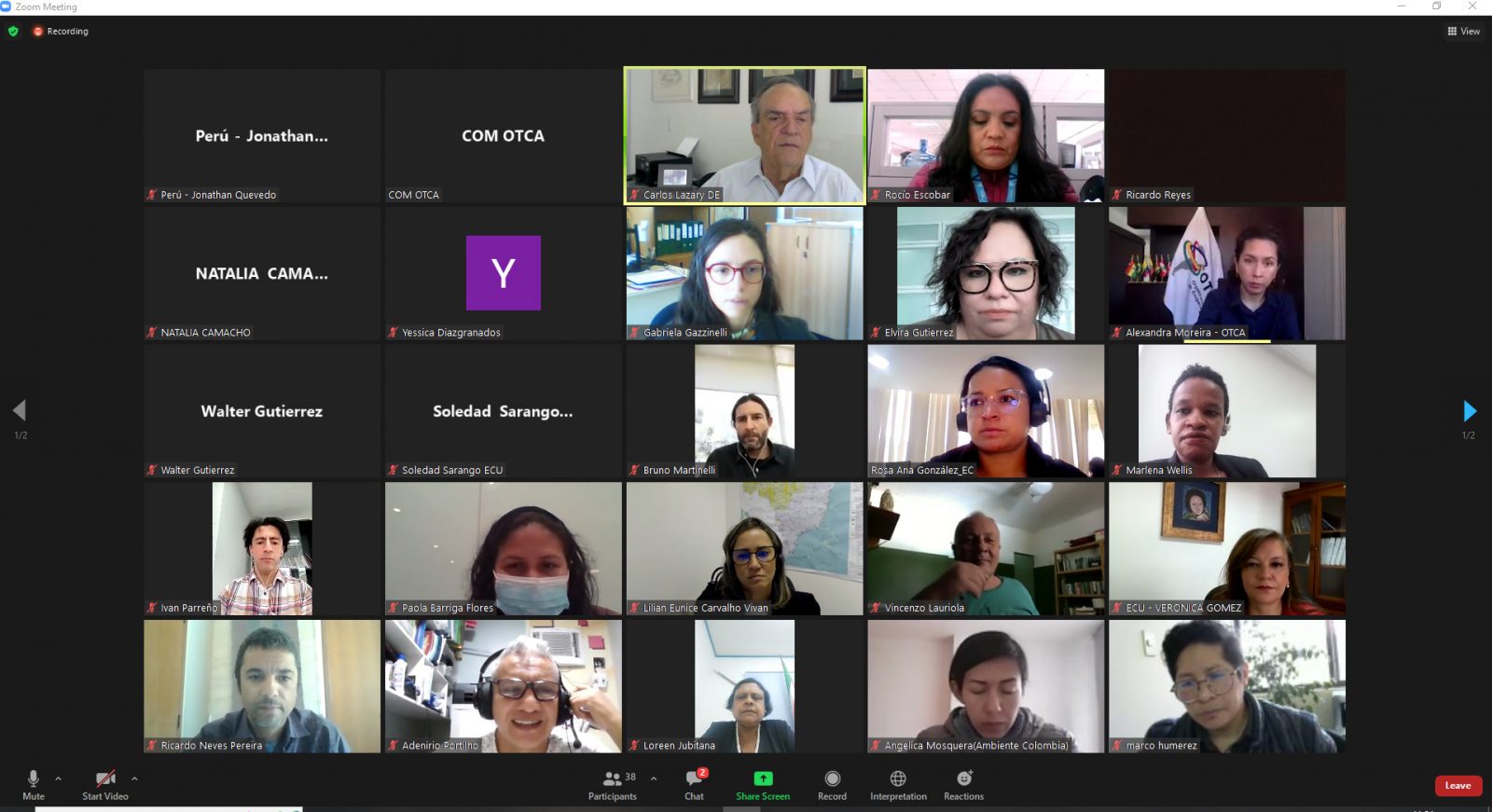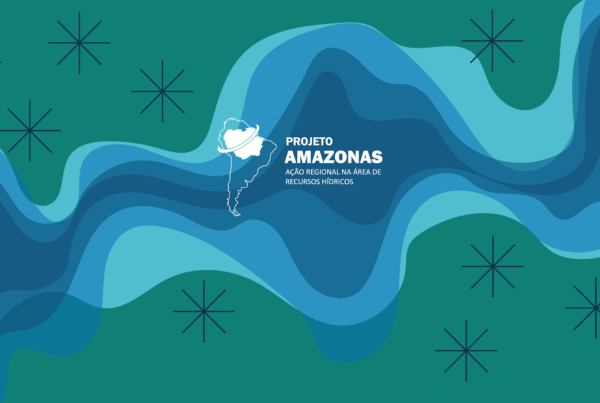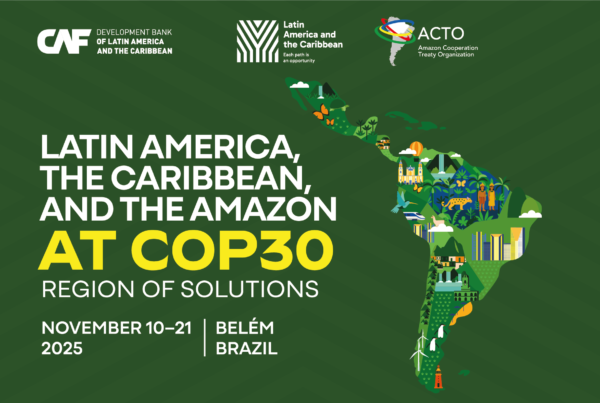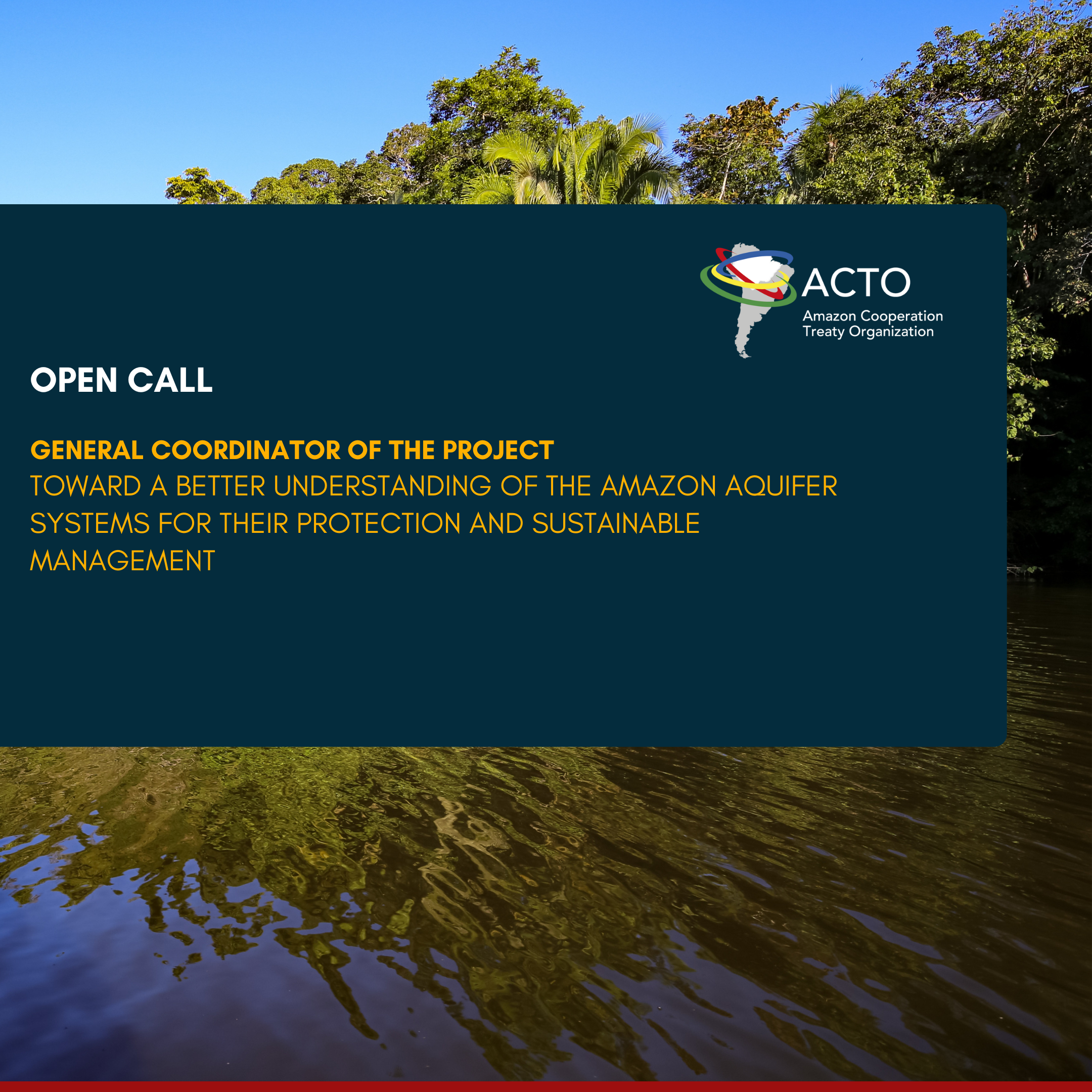The Amazon Cooperation Treaty Organization (ACTO) has launched the project to create the Amazonian Regional Platform of Indigenous Peoples, the first regional initiative.
Remotely, about 40 representatives of the Ministries of Foreign Affairs, government entities and subject matter experts participated in the first virtual meeting of focal points of the project, where the scope of the initiative was presented in order to define a roadmap for its implementation and the next steps to follow.
This initiative is funded by the European Union through the EUROCLIMA program and implemented by the German Technical Cooperation (GIZ), the Economic Commission for Latin America and the Caribbean (ECLAC) and the Spanish Agency for International Development Cooperation (AECID).
Currently, the Amazon is home to more than 420 Indigenous Peoples, representing approximately 10% of the total population of the region. In addition, it has one of the greatest linguistic diversities, with about 370 languages, which highlights the need for inclusive action by indigenous peoples in the management of climate change, specifically in the Amazon.
The objective of the project is to improve the understanding, particularly by decision-makers, of the value of indigenous knowledge in addressing climate change, so that it can be taken into account in the elaboration of public policies, activities and projects related to climate change mitigation and adaptation, through the implementation of a space for dialogue of different knowledge systems.
At the opening, the Secretary-General of ACTO, Alexandra Moreira, highlighted: “Today is a special day because we are beginning the implementation of this important project to create the indigenous knowledge platform for climate change, which, together with the Amazon Regional Observatory and other initiatives of ACTO, will contribute to climate action, especially the knowledge, technologies and science that Indigenous Peoples have been developing and that can be used within public policies in our countries, as part of responses to climate change.”
The meeting was also attended by Mr. Walter Gutiérrez, titular representative of the group of Latin American and Caribbean Countries (GRULAC) before the Facilitator Working Group of the Platform of Indigenous Peoples and Local Communities, a space created within the framework of the United Nations Framework Convention on Climate Change (UNFCCC), a body that inspires regional work in the Amazon. Gutiérrez welcomed the ACTO’s initiative in holding these types of regional meetings, as they are an example to promote national and regional action processes for climate empowerment, an experience that will be presented at the UNFCCC Conference of the Parties (COP27) in November in Egypt.
The project coordinator, Elvira Gutiérrez, during her presentation, stated that the specific objectives are linked to four areas related to the components of the project. The first is to promote the exchange of knowledge and good practices of indigenous peoples with a focus on climate change; the second is to strengthen the capacity of indigenous peoples to participate in the global climate change agenda through the establishment of the platform; the third one is to promote the design of an Amazonian regional strategy to strengthen resilience and adaptation and mitigation processes, including the important contribution of indigenous peoples’ knowledge to addressing climate change. Finally, strengthen the dialogue capacities of multiple actors to articulate public climate policies.
Currently, ACTO is developing actions with Indigenous Peoples, especially in the area of health with the PIACI and, transversally, in the conservation and protection of biodiversity, forests, water management and food security, aspects that together contribute to the adaptation and mitigation of climate change in the Amazon Region.



